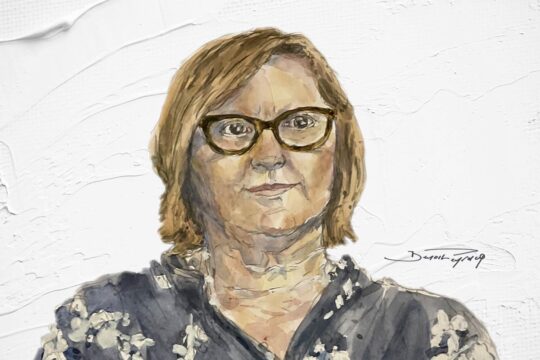The Syrian government suspended the evacuation of civilians and fighters from the last rebel-held parts of Aleppo on Friday, leaving thousands of people trapped and uncertain of their fate.
Russia, which helped to broker the deal with Turkey, said its operation was now "complete" with all women and children moved from the city.
Ankara and a Syrian military source said the evacuation had been suspended but was not yet over.
"The evacuations are not over and many people still want to leave the area," said Turkish Foreign Minister Mevlut Cavusoglu.
Amid the confusion, a convoy of evacuees that had already left the east when the operation was suspended was forced to return to rebel territory, an AFP correspondent said.
The delicate operation to bring the last civilians and rebels out of east Aleppo began on Thursday and had continued overnight, with thousands of people leaving in buses and ambulances.
But on Friday morning it was abruptly suspended, with the government accusing rebels of violating the terms of the accord.
"The evacuation operation has been suspended because the militants failed to respect the conditions of the agreement," a security source told AFP.
State television said: "The terrorist groups violated the agreement and tried to smuggle heavy weapons and hostages from east Aleppo."
The International Committee of the Red Cross, which has supervised the evacuation, confirmed it was on hold.
- Besieged villages -
The opposition accused the government of suspending the operation in a bid to secure the evacuation of residents from two villages under rebel siege.
"The regime and its militias... stopped the evacuation operation in another attempt to involve Fuaa and Kafraya," said Yasser al-Youssef of the Nureddin al-Zinki rebel group.
The Shiite-majority villages in Idlib province have been besieged since 2015.
The government and its other main ally Iran have reportedly sought to add an evacuation of civilians from the villages to the terms of the Aleppo deal.
The Syrian Observatory for Human Rights, a Britain-based monitor, also said the suspension appeared to be related to the two villages.
It said pro-government fighters were blocking the road out of Aleppo that the evacuation convoy had been using and rebels were refusing the evacuation of residents of Fuaa and Kafraya.
The evacuation of the last pocket of rebel territory in Aleppo began on Thursday under a deal brokered by Russia and Turkey.
It had been scheduled to begin on Wednesday, but was delayed because of government objections, including over Fuaa and Kafraya.
Clashes resumed for several hours before the deal was revived, and on Thursday afternoon buses and ambulances began transporting evacuees to rebel territory in the west of Aleppo province.
Residents and rebels boarded green government buses and ambulances and later left in private vehicles.
Initially, evacuees left in a single convoy that travelled back and forth.
But overnight, the vehicles began returning individually to collect more evacuees as soon as they had dropped off their passengers.
The Observatory estimated some 8,500 people had left before the operation was suspended, including around 3,000 rebels.
Syrian state media reported a figure of around 8,000.
- 'History in the making' -
Ahmad al-Dbis, a doctor helping coordinate the evacuation of the wounded, said at least 500 evacuees had wounds or illnesses requiring attention.
From a gathering point near the town of Khan al-Aasal, people were travelling further west, heading either to camps for the displaced or to stay with relatives or friends.
The departures began a month to the day after government forces launched a major offensive to retake all of Aleppo and secure the regime's biggest victory in more than five years of conflict.
In a video message to Syrians on Thursday, President Bashar al-Assad said the "liberation" of Aleppo was "history in the making".
But US Secretary of State John Kerry said what had already happened in the city was "unconscionable", raising concerns for the "tens of thousands of lives that are now concentrated into a very small area of Aleppo".
The UN Security Council will meet later Friday to discuss a French call for international observers to monitor the evacuation and ensure aid deliveries.
It is unclear how many people remain in east Aleppo, with tens of thousands fleeing to territory held by the government or Kurds in recent days, but perhaps tens of thousands are still inside.
- 'Heart-breaking scene' -
The evacuations have been emotional for departing residents desperate for relief after months of bombardment and siege, but also tearful at the prospect of potentially permanent exile.
In the dust of one bus window Thursday someone had traced: "One day we will return".
"The scene was heart-breaking," said ICRC Syria head Marianne Gasser.
"People are faced with impossible choices. You see their eyes filled with sadness."
More than 310,000 people have been killed since the conflict began with anti-government protests in 2011, and over half the population has been displaced, with millions becoming refugees.
A blast shook the bustling Midan district of Damascus on Friday, the Observatory and Syrian media reported.
The monitor said one woman was killed, but could not confirm whether she was a suicide bomber or a bystander.
Diplomatic efforts -- including several rounds of peace talks in Geneva -- failed to make headway in resolving the conflict, which reached a turning point last year when Russia launched an air war in support of Assad.
On Friday, Russian President Vladimir Putin said Moscow was "actively negotiating" with rebels via Turkish mediators.
"The next step (after Aleppo) will be to reach agreement on a complete ceasefire across all of Syria," he said in Japan.
He added that the parties were proposing fresh peace talks, possibly in Kazakhstan.


